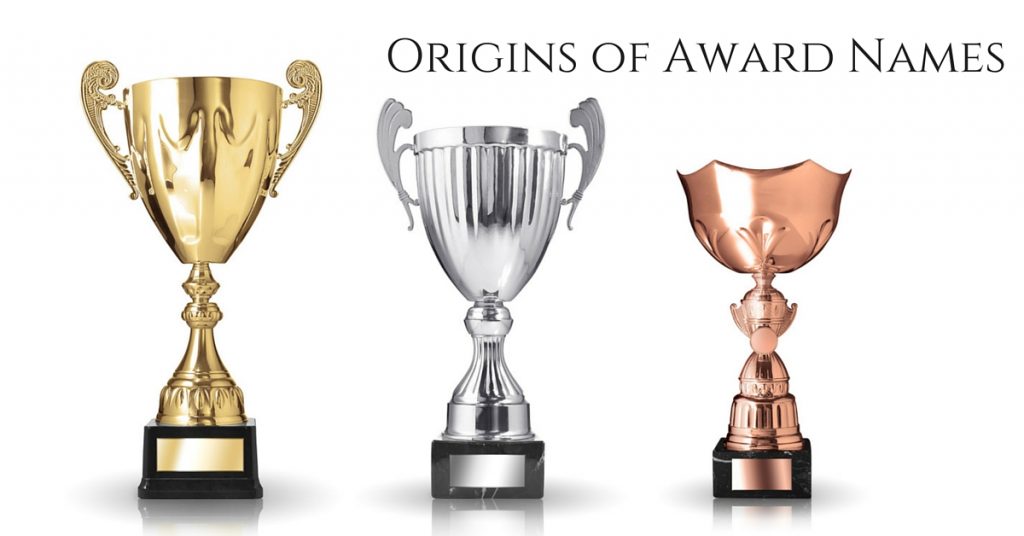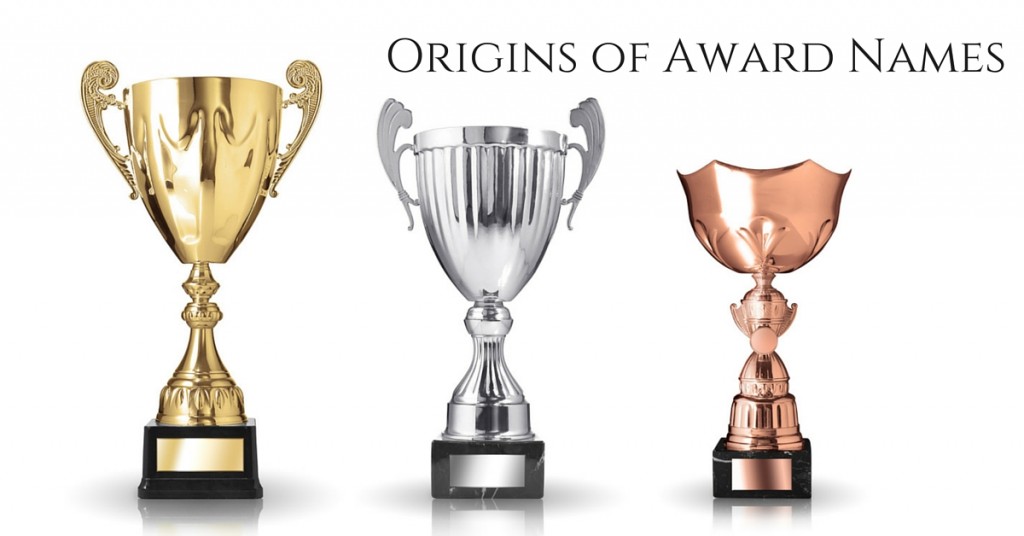Many of the top honors in the arts, sports, and the sciences are named after people. Here are the stories of the names behind the awards.
JOHN HEISMAN
Heisman coached football at Auburn, Clemson, and Georgia Tech in the 1890s and early 20th century. In the 1930s, he worked as athletic director at the Downtown Athletic Club in New York City. Since 1935, the club has issued the Heisman Trophy— for the year’s best college football player (voted on by sports reporters)—in his honor. Past winners include Reggie Bush, Barry Sanders, Tony Dorsett, Roger Staubach, and O. J. Simpson.
ANTOINETTE PERRY
Perry was a stage actress and director in the early 20th century. She also founded the American Theatre Wing in the 1940s, which, among other theatrical-promoting activities, hands out the Antoinette Perry, or “Tony,” Awards honoring the best Broadway plays, musicals, and performances of each year. All-time Tony leader: Actress Julie Harris was nominated 10 times and won 5.
JOHN NEWBERY
John Newbery was an 18th-century publisher who specialized in children’s books, and is believed to be the first publisher ever to do so. Since 1922, the American Library Association has annually presented the Newbery Award to the author of the best new children’s novel. Some Newbery winners: Hugh Lofting (for The Voyages of Doctor Dolittle), Esther Forbes (Johnny Tremain), and Katherine Paterson (Bridge to Terabithia).
RANDOLPH CALDECOTT
Caldecott was an illustrator in 19th-century England. He drew the pictures for books including The Babes in the Wood and The House that Jack Built. Like the Newbery Award, the Caldecott Medal is a prize for children’s literature presented by the American Library Association, but this one awards only the illustrators. Caldecott- winning titles include The Snowy Day (Ezra Jack Keats), The Polar Express (Chris Van Allsburg), and Where the Wild Things Are (Maurice Sendak).
GEORGE FOSTER PEABODY
Peabody was a businessman who switched to public service in 1906 at age 54, working for various universities as well as the Democratic National Committee. After Peabody died in 1938, the University of Georgia, where he’d served on the board, established the Peabody Award. Officially presented by the college’s journalism school, the award honors excellent radio and TV
reporting and socially redeeming programming. Winners in 2006 included 60 Minutes, American Masters, The Office, and Scrubs.
IRVING G. THALBERG
Thalberg was head of the Production Division at MGM Studios in the 1920s and 1930s. He sought to make film more respectable— not just profitable. He was the man behind Mutiny on the Bounty (1935) and the Marx Brothers’ A Night at the Opera (1935), but he never allowed his name to be credited in the films he produced. He died of pneumonia in 1936 at age 37. Since 1938, the Academy of Motion Picture Arts and Sciences has presented the Irving G. Thalberg Memorial Award. It’s a lifetime achievement award presented at the Oscars to a well-established director or producer. Past winners include Alfred Hitchcock, Steven Spielberg, and Billy Wilder.
WILL EISNER
Eisner was a writer and illustrator who pioneered the long-form comic, or “graphic novel,” with his 1940s comic series The Spirit. Eisner Awards, established in 1988 in his honor, are given out each year to artists, writers, and publishers for excellence in comic books. Categories include Best Short Story, Best Writer, Best Cover Artist, Best Colorist, and more than 20 others. Past winners include Stan Lee for The Silver Surfer: Parable; Bill Watterson’s Calvin and Hobbes; and Frank Miller for Sin City.
JOHN D. AND CATHERINE T. MACARTHUR
MacArthur made millions as the owner of several insurance com- panies in the 1930s and 1940s. His wife, Catherine, held board positions at many of her husband’s firms. When John MacArthur died in 1978, most of his fortune was used to start the John D. and Catherine T. MacArthur Foundation (Catherine died three years later). The major work of the charity is the awarding of the MacArthur Fellowship, or “genius grant.” Between 20 and 40 Americans each year—nominated by a small selection committee —receive $500,000 dispensed over five years as an “investment in a person’s originality, insight, and potential.” Among the more than 700 “geniuses” are historians, writers, scientists, artists, musicians, and inventors. Some well-known MacArthur fellows: writer Thomas Pynchon, paleontologist Stephen Jay Gould, and critic Henry Louis Gates.
JOHN CHARLES FIELDS
Canadian mathematician John Charles Fields died in 1932 and stipulated in his will that a prize be awarded every four years to two, three, or four groundbreaking mathematicians who are under the age of 40. Presented by the International Mathematical Union, the Fields Medal is the highest honor in math. Andrei Okounkov won a Fields Medal in 2006 for “his contributions to bridging probability, representation theory, and algebraic geometry.” (Don’t worry—we don’t know what that means, either.)










